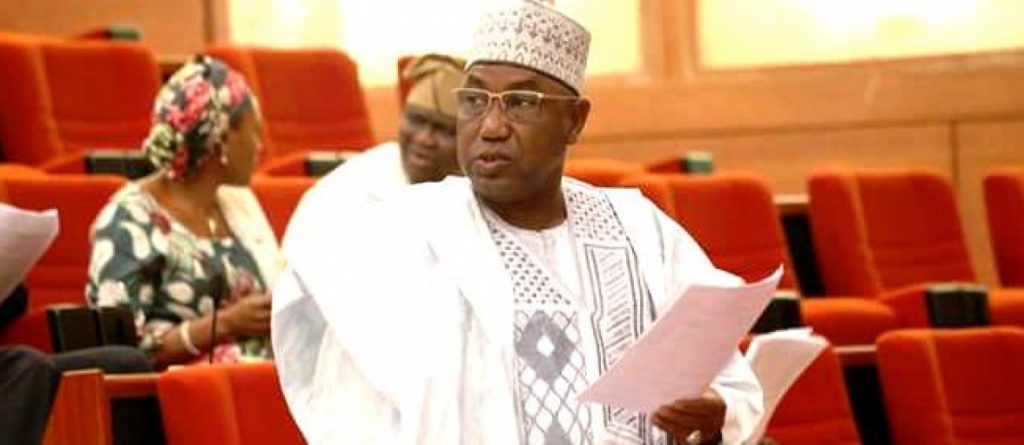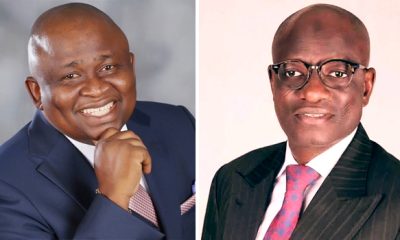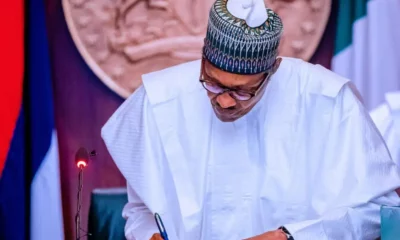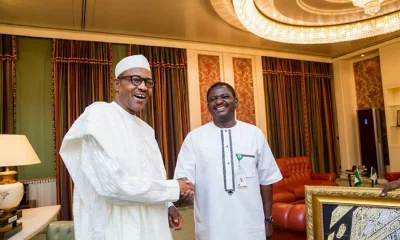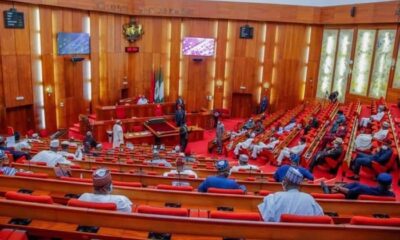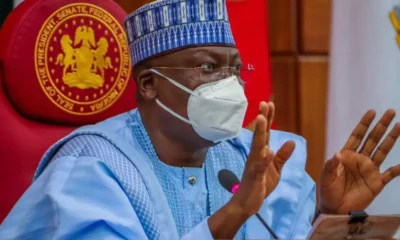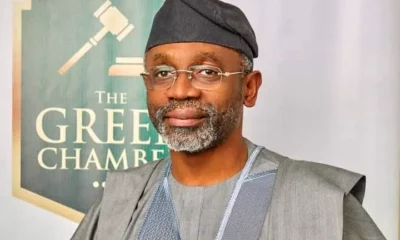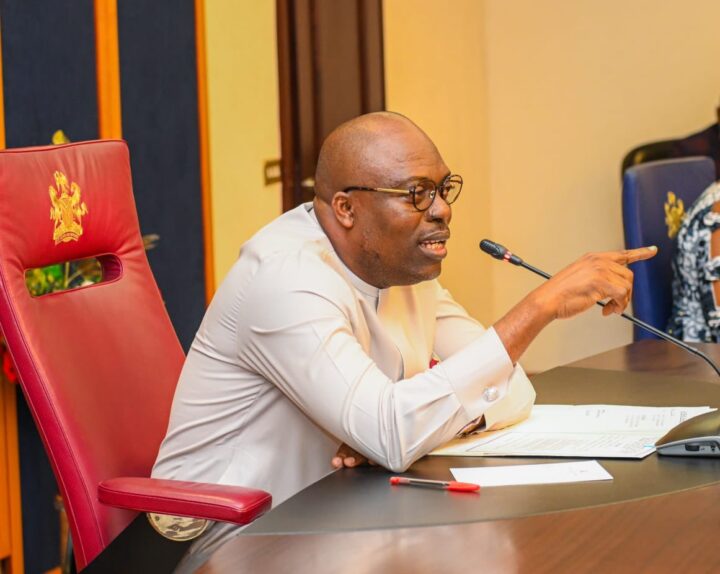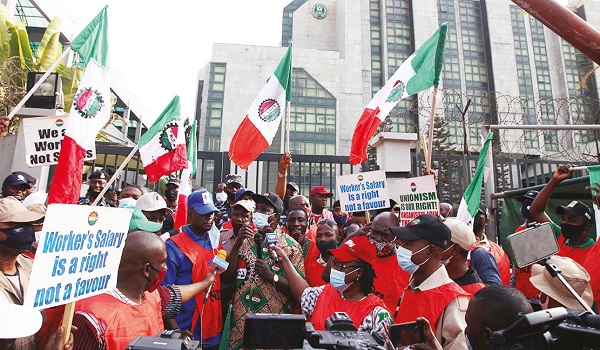The Chairman of the Senate Committee on INEC, Kabir Gaya (APC, Kano) has explained that the direct primaries clause adopted by the Senate in the proposed Electoral Amendment Bill is not a revolt against state governors, but an opportunity to protect legislators from the governors.
The senator stated this when he appeared on “Politics Today” a programme on Channels TV on Tuesday.
Gaya appeared alongside the member of the House of Representatives representing Ikorodu Federal Constituency, Babajimi Benson (APC, Lagos).
Recall that the Senate had, on Tuesday, reviewed its earlier decision on the controversial section 52 (3), and also adopted the position of the House on Section 87 on mandatory direct primaries for all parties.
87(1) of the bill now reads, “A political party seeking to nominate candidates for elections under this Bill shall hold direct primaries for aspirants to all elective positions, which shall be monitored by the Commission.
While direct primaries involves the participation of all party members in the selection of party candidates, the indirect primaries involves the use of delegates who are usually leaders and members of the executives at the ward, local government and state levels, to elect the party’s candidate(s) at a congress or convention.
Back in July, the Speaker of the House, Femi Gbajabiamila had moved the amendment to allow direct primaries, which was adopted by the House during the clause by clause consideration.
The main opposition party, the Peoples Democratic Party (PDP), kicked against the proposal, describing it as undemocratic.
Gaya, a former governor of Kano State in the Second Republic, said the decision to include the direct primaries is not to revolt against the governors but to protect the federal lawmakers from their interference.
“Sometimes, governors have delegates, and they decide who will be the next House of Representatives member, the next senator.
“The best legislators are those who come back often, because of experience, but these days, because of what is happening, because of interference of indirect primaries, you find out that only 30% will come back to the National Assembly. Of course, you are losing 70%. You are losing experienced people.
“In the National Assembly, the more you come, the more experienced you become. This is a means of empowering the legislators,” he said.
Reacting to concerns about the cost of running direct primaries by political parties, Gaya said it is the only means to get credible candidates into elective positions.
“Direct primary is the easiest form of democracy anyone can subscribe to.
“In every locality—for example, I have 172 wards in my constituency, if we are going to do direct primaries, all those 172 wards will have people, when you set up to buy votes, it will be difficult to buy votes in 172 locations. You have got to be a popular candidate or aspirant so that you can be voted for.
“I was a product of this primary in 1991. We did direct primary when I was running for governor, and I won.
“As a young man, people felt I am not that strong enough, but I went round every constituency in my state, that time it was Kano and Jigawa before Jigawa was created. I went around and I became popular. People came out to defend their candidate, which was me. They were there, people line up behind their candidates. And then we were voted into office. I believe that direct form is the most credible.
“In the case of delegates, someone can put them in one hole, and the highest bidder can take over the party. Someone with money, who is not even a member of the party, can say, I want to run for this office because he has money, he can buy delegate.
“Unfortunately, if as a candidate, I have paid money, I will see it as an investment. Because I won’t see it as a political appointment, rather as a business. The officer will be corrupt when you do a direct primary.
Gaya also said the lawmakers deleted section 52(3) in response to the outcry by Nigerians. He said that the conference committee will meet in the next couple of days to harmonise the two bills.
Benson, who is the Chairman of the House Committee on Defence, said the indirect primaries will end money bags in political parties.
The lawmaker stressed that popular aspirants will not need to go to small parties to participate, rather, try their popularity in the big parties.
Although both chambers have set up the conference committee, concerns remain on the composition of the committees.

 News3 years ago
News3 years ago
 Entertainment2 years ago
Entertainment2 years ago
 News3 years ago
News3 years ago
 Privacy3 years ago
Privacy3 years ago
 Sports2 years ago
Sports2 years ago
 Entertainment2 years ago
Entertainment2 years ago
 Opinion3 years ago
Opinion3 years ago
 News3 years ago
News3 years ago
